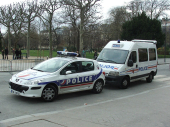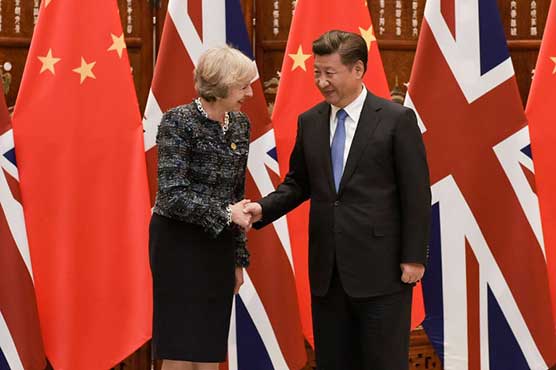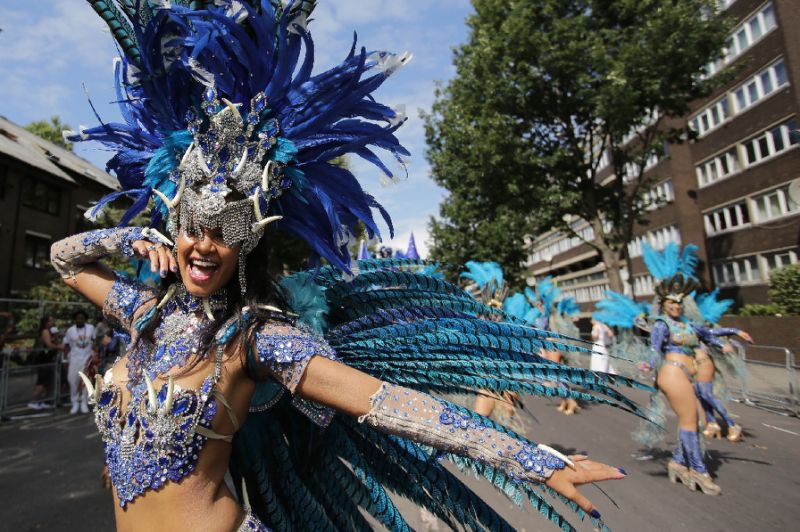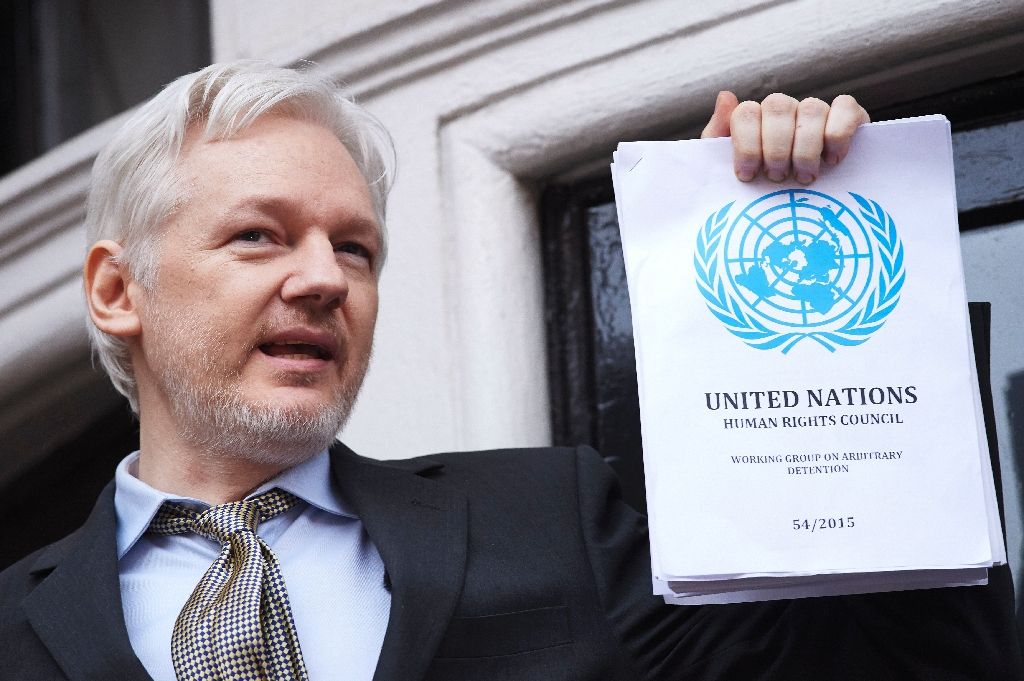
Entertainment
-
 DiscoverEU marks 40 years of Schengen with 40,000 free travel passes for young Europeans
The European Commission is celebrating the 40th anniversary of the Schengen Area by offering 40,000 young Europeans the chance to explore the continent through DiscoverEU, part of the31 October 2025Read More...
DiscoverEU marks 40 years of Schengen with 40,000 free travel passes for young Europeans
The European Commission is celebrating the 40th anniversary of the Schengen Area by offering 40,000 young Europeans the chance to explore the continent through DiscoverEU, part of the31 October 2025Read More... -
 Brussels universities to award honorary doctorates to Stromae, Lize Spit, and Amélie Nothomb
The Vrije Universiteit Brussel (VUB) announced on Monday that Stromae, Lize Spit, Amélie Nothomb, François Schuiten, and Ever Meulen will receive joint honorary doctorates from VUB and27 October 2025Read More...
Brussels universities to award honorary doctorates to Stromae, Lize Spit, and Amélie Nothomb
The Vrije Universiteit Brussel (VUB) announced on Monday that Stromae, Lize Spit, Amélie Nothomb, François Schuiten, and Ever Meulen will receive joint honorary doctorates from VUB and27 October 2025Read More... -
 Stolen Renaissance masterpiece returns to Italy after 52 years
After more than half a century, a stolen Renaissance painting has finally returned home to Italy. *Madonna with Child*, a tempera-on-wood masterpiece by Venetian painter Antonio Solario,31 July 2025Read More...
Stolen Renaissance masterpiece returns to Italy after 52 years
After more than half a century, a stolen Renaissance painting has finally returned home to Italy. *Madonna with Child*, a tempera-on-wood masterpiece by Venetian painter Antonio Solario,31 July 2025Read More... -
 Belgian seaside resorts: highlights of royal De Panne
While Ostend is often dubbed the queen of Belgium’s seaside resorts, the country’s coastline offers many other gems worth discovering. In this series, Belga English explores four distinctive20 July 2025Read More...
Belgian seaside resorts: highlights of royal De Panne
While Ostend is often dubbed the queen of Belgium’s seaside resorts, the country’s coastline offers many other gems worth discovering. In this series, Belga English explores four distinctive20 July 2025Read More... -
 Louis Vuitton named suspect in Dutch money laundering probe
Luxury fashion house Louis Vuitton has been named a suspect in a Dutch money laundering investigation, according to the Dutch Public Prosecution Service (OM). The OM alleges that18 July 2025Read More...
Louis Vuitton named suspect in Dutch money laundering probe
Luxury fashion house Louis Vuitton has been named a suspect in a Dutch money laundering investigation, according to the Dutch Public Prosecution Service (OM). The OM alleges that18 July 2025Read More... -
 Brussels tops global rankings for international meetings as tourism soars to new heights
Brussels has once again secured its position as the world’s top city for international meetings, according to the latest annual report from the Union of International Associations (UIA).26 June 2025Read More...
Brussels tops global rankings for international meetings as tourism soars to new heights
Brussels has once again secured its position as the world’s top city for international meetings, according to the latest annual report from the Union of International Associations (UIA).26 June 2025Read More... -
 Coffee prices keep climbing in Czech establishments
The cost of a cup of coffee in Czech restaurants and cafés has increased by 4% over the past year, now averaging CZK 57.80, according to data from the Dotykačka point-of-sale system.15 June 2025Read More...
Coffee prices keep climbing in Czech establishments
The cost of a cup of coffee in Czech restaurants and cafés has increased by 4% over the past year, now averaging CZK 57.80, according to data from the Dotykačka point-of-sale system.15 June 2025Read More...
News
-
 White Christmas unlikely in Switzerland, MeteoSwiss says
The chances of a white Christmas in Switzerland are slim, with snowfall in the lowlands virtually ruled out, according to the Federal Office of Meteorology and Climatology (MeteoSwiss).Read More...
White Christmas unlikely in Switzerland, MeteoSwiss says
The chances of a white Christmas in Switzerland are slim, with snowfall in the lowlands virtually ruled out, according to the Federal Office of Meteorology and Climatology (MeteoSwiss).Read More... -
 Guy Parmelin elected Swiss President for 2026 with record-breaking vote
Economics Minister Guy Parmelin will serve as President of the Swiss Confederation in 2026, securing the office with a result that sets a new benchmark for the current millennium.Read More...
Guy Parmelin elected Swiss President for 2026 with record-breaking vote
Economics Minister Guy Parmelin will serve as President of the Swiss Confederation in 2026, securing the office with a result that sets a new benchmark for the current millennium.Read More... -
 Nigeria seeks French support to tackle insecurity, Macron says
Nigerian President Bola Tinubu has requested increased support from France to combat escalating insecurity in the country’s north, French President Emmanuel Macron said on Sunday,Read More...
Nigeria seeks French support to tackle insecurity, Macron says
Nigerian President Bola Tinubu has requested increased support from France to combat escalating insecurity in the country’s north, French President Emmanuel Macron said on Sunday,Read More... -
 Swiss army has “gone back to sleep,” says departing chief
Switzerland briefly awakened to the urgency of national defence following Russia’s 2022 invasion of Ukraine — but has since drifted back into complacency, outgoingRead More...
Swiss army has “gone back to sleep,” says departing chief
Switzerland briefly awakened to the urgency of national defence following Russia’s 2022 invasion of Ukraine — but has since drifted back into complacency, outgoingRead More... -
 Poland and Germany to seal new defence pact in 2026, leaders announce
Polish Prime Minister Donald Tusk and German Chancellor Friedrich Merz said on Monday that their governments plan to sign a new bilateral defence agreement nextRead More...
Poland and Germany to seal new defence pact in 2026, leaders announce
Polish Prime Minister Donald Tusk and German Chancellor Friedrich Merz said on Monday that their governments plan to sign a new bilateral defence agreement nextRead More... -
 Monegasque Language Committee resumes its work
Following the publication of Sovereign Ordinance No. 11,219 on 7 May 2025, which appointed the members of the Monegasque Language Committee, the group has officially reconvened atRead More...
Monegasque Language Committee resumes its work
Following the publication of Sovereign Ordinance No. 11,219 on 7 May 2025, which appointed the members of the Monegasque Language Committee, the group has officially reconvened atRead More... -
 France arrests four, including two Russian nationals, on espionage suspicions
French authorities have arrested four people — including two Russian nationals — as part of an investigation into suspected espionage conducted on behalf of a foreign state, the ParisRead More...
France arrests four, including two Russian nationals, on espionage suspicions
French authorities have arrested four people — including two Russian nationals — as part of an investigation into suspected espionage conducted on behalf of a foreign state, the ParisRead More... -
 German home prices expected to climb over 3% annually, pressuring affordability for new buyers
German residential property prices are poised to grow by more than 3% a year in the coming years, according to a Reuters poll of property analysts, raising fresh concerns about housingRead More...
German home prices expected to climb over 3% annually, pressuring affordability for new buyers
German residential property prices are poised to grow by more than 3% a year in the coming years, according to a Reuters poll of property analysts, raising fresh concerns about housingRead More... -
 UN convention to review environmental complaint over France’s 2030 Winter Olympics
A United Nations environmental body has agreed to examine a complaint accusing France of violating international transparency and public-participation rules during preparations for the 2030Read More...
UN convention to review environmental complaint over France’s 2030 Winter Olympics
A United Nations environmental body has agreed to examine a complaint accusing France of violating international transparency and public-participation rules during preparations for the 2030Read More...

Most Read
- Teen held after US woman killed in London stabbings
- Football: Farhad Moshiri adamant Everton deal above board
- Greece hails new post-bailout chapter but concerns remain
- The Kokorev case caused wide discussion in Brussels
- EU accession talks stir debate in Moldova: insights from Gagauzia's leader, Yevgenia Gutsul
Politics

Britain’s desire to become a free trade leader following its vote to leave the European Union is seen as wishful thinking by experts, who say London’s hands are tied until a formal exit from the bloc.
Prime Minister Theresa May used this month’s G20 summit in China to explore potential trade deals with Australia, India, Mexico, Singapore and South Korea.
But international trade experts have been quick to highlight Britain’s lack of experience in such negotiations.
“Currently, legally speaking, the UK is part of the EU and therefore is not able to conclude free trade agreements,” said Hosuk Lee-Makiyama, director of trade policy think tank, the European Centre for International Political Economy.
“For me, it is more an experience problem because the UK has actually not negotiated” on such matters since 1973 when the country joined the European Union, Mr. Lee-Makiyama added.
At stake is Britain’s position as a major world economy along with its future economic and employment growth.

Britain’s desire to become a free trade leader following its vote to leave the EU is seen as wishful thinking by experts, who say London’s hands are tied until a formal exit from the bloc.
Prime Minister Theresa May used this month’s G20 summit in China to explore potential trade deals with Australia, India, Mexico, Singapore and South Korea.
But international trade experts have been quick to highlight Britain’s lack of experience in such negotiations.
"Currently, legally speaking, the UK is part of the EU and therefore is not able to conclude free trade agreements," said Hosuk Lee-Makiyama, director of trade policy think tank, the European Centre for International Political Economy.
"For me, it is more an experience problem because the UK has actually not negotiated" on such matters since 1973 when the country joined the European Union, Lee-Makiyama added.

London's mayor threw his support behind DJs and ravers on Wednesday by criticising the closure of the city's famed Fabric nightclub, after its licence was revoked following several drug-related deaths.
The local council revoked Fabric's license after an initial suspension last month at the request of police, following the deaths of two teenagers from suspected drug overdoses at the nightspot in the borough of Islington.
Khan described Fabric as an "essential part of our cultural landscape" and expressed his disappointment that the club owners, local authorities and the police were unable to reach an agreement.
Fabric, renowned for its drum and bass, techno and house nights, built up a reputation to rival fellow British clubbing institution Ministry of Sound over the last decade and a half.
"The issues faced by Fabric point to a wider problem of how we protect London's night-time economy, while ensuring it is safe and enjoyable for everyone," he said in a statement.

London's stock market fell Monday on a rallying pound, while eurozone indices lost earlier gains to close flat after a pre-weekend surge triggered by well-received US jobs data.
Wall Street was closed for a public holiday.
Oil prices bounced after the world's two biggest oil producers, Saudi Arabia and Russia, pledged to stabilise the market.
London's benchmark FTSE 100 index was 0.2 percent lower, as the pound jumped above $1.33 in the wake of strong UK services sector activity that further eased concerns over Brexit's economic fallout.
"August saw the UK economy score a hat-trick of good news with a record rebound in the services PMI to round things off after solid readings for the manufacturing and construction sectors," said Forex.com analyst Fawad Razaqzada.
"This is really good news for the pound, perhaps not so good for UK stocks in the short-term as it reduces the odds for further rate cuts from the Bank of England."
Activity in Britain's crucial services sector showed a record jump in August, rebounding strongly from a slump immediately following the country's vote to exit the EU, according to a survey.

Graduates applying for jobs in London's finance sector risk being overlooked if they wear brown shoes, a government-commissioned report into social mobility said Thursday.
"Opaque" dress codes practiced by those from more formal backgrounds are being used to judge candidates, with brown shoes a fashion faux-pas that many from poorer backgrounds may not be aware of, said the study.
"Managers often select candidates for client-facing jobs who fit the traditional image of an investment banker and display polish," it said.
"For example, some senior investment bankers still deem it unacceptable for men to wear brown shoes with a business suit."
One interviewee from a non-privileged background explained he was rejected despite being told that he had interviewed well.
"He said 'you're clearly quite sharp, but you're not quite the fit for (this bank), you're not polished enough'," he said of the explanation given for his rejection.

On Saturday 10 and Sunday 11 September, Sainsbury’s Nine Elms will be holding a ‘Waste less, Save more’ event as part of the retailer’s drive to help customers reduce food waste.
Waste less, Save more is a £10 million initiative to help households reduce the level of food they’re throwing away and designated colleagues will be on hand to provide storage tips which will teach customers how to keep their food fresh for longer.
As part of their mission, colleagues from the Sainsbury’s Nine Elms store will be handing out free fridge thermometers so shoppers can ensure their food is being stored at an optimum temperature. By setting your fridge to between 0 – 5 degrees, fresh foods will keep for longer, helping customers cut down on food waste.
Andy Robins, Store Manager at Sainsbury’s Nine Elms, said: “The typical UK household throws away, on average, £700 of food each year. Through our Waste less, Save more campaign, we hope that our customers will pick up some handy tips to help them reduce the amount of food that they throw away and save money.”

Graduates applying for jobs in London's finance sector risk being overlooked if they wear brown shoes, a government-commissioned report into social mobility said on Thursday (Sept 1).
"Opaque" dress codes practised by those from more formal backgrounds are being used to judge candidates, with brown shoes a fashion faux-pas that many from poorer backgrounds may not be aware of, said the study.
"Managers often select candidates for client-facing jobs who fit the traditional image of an investment banker and display polish," it said. "For example, some senior investment bankers still deem it unacceptable for men to wear brown shoes with a business suit."

A teenager accused of murdering a US tourist and injuring five others in a knife attack in central London made his first court appearance on Saturday and was remanded in custody.
Zakaria Bulhan is charged with the murder of 64-year-old retired teacher Darlene Horton plus five counts of attempted murder following the incident on Wednesday evening in Russell Square.
The 19-year-old, who lives in Tooting in south London, is a Norwegian national of Somali origin who came to Britain as a young child in 2002.
After being charged on Friday night, he appeared at Westminster Magistrates' Court for a procedural hearing on Saturday, where he spoke only to confirm his name, address and date of birth.
Wearing a light grey tracksuit, he held his face in his hand as the names of the victims were read out. When asked if he understood the charges, he nodded and gave the judge a thumbs-up.

Hundreds of thousands of revellers took to the streets to celebrate London's Notting Hill Carnival on Monday, as police made more than 400 arrests during the festival's 50th anniversary.
Feathered dancers, steel bands and earth-shaking sound systems featured in the vibrant celebration of British Caribbean culture, with many festival-goers sporting glittery face paint and waving Jamaican flags.
"It's excellent! We are loving the free spirit of everyone and we have all been dancing," said Annuar Aziz, a 41-year-old businessman from Malaysia who stumbled on the event by accident with his wife and four children.
"We heard the music from where we are staying in Bayswater and just followed the sound."
As every year, some outbreaks of violence and many drug arrests marred Europe's biggest street party.

Ecuador says it will let Swedish officials interview Julian Assange at its embassy in London, where the WikiLeaks founder has been sheltering for the past four years.
Quito's foreign ministry said in a statement late Wednesday that a letter has been sent by the Ecuadoran government to set up the meeting.
"In the coming weeks, a date will be established for the proceedings to be held at the Embassy of Ecuador in the United Kingdom," the statement read.
Prosecutors in Sweden have said they want to interview Assange in connection with a 2010 rape allegation against him.
"The prosecutor has requested permission to carry out an interrogation, so it is of course good for the investigation if it can be held," Karin Rosander, spokeswoman for the Swedish Prosecution Authority, told AFP on Thursday.
She said however that the exact date of the interview has not yet been pinned down.

















